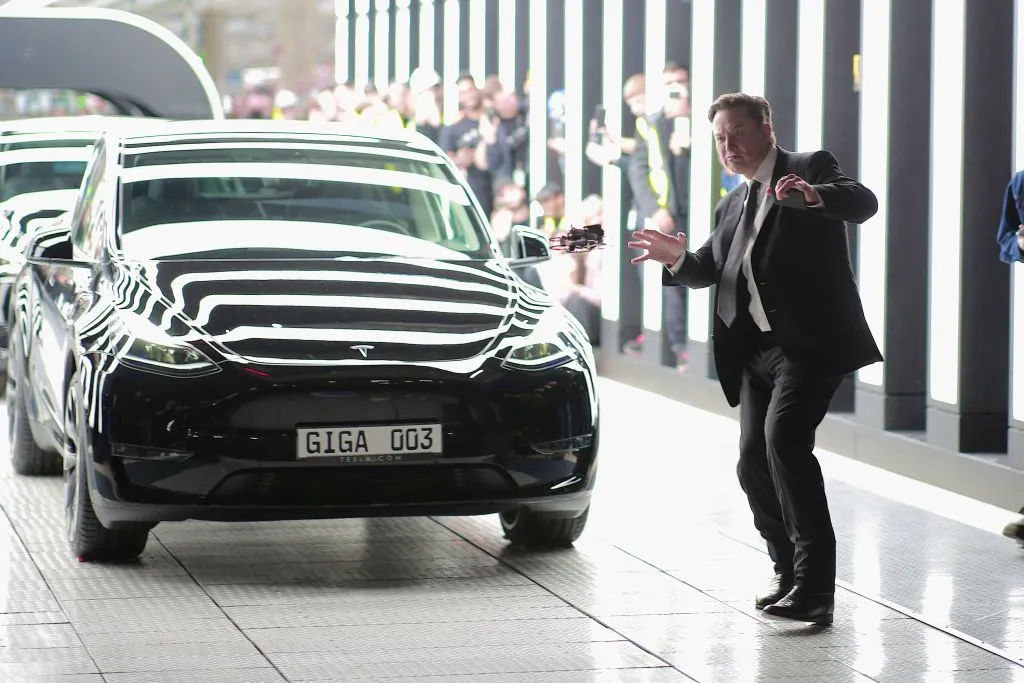Elon Musk, the charismatic CEO of Tesla Inc (NASDAQ:TSLA), recently took to Twitter to offer a surprising commendation of China’s manufacturing and infrastructure capabilities. His praise came amidst escalating tensions between the United States and China over tariffs on electric vehicles (EVs), shedding light on the complex dynamics shaping the global automotive industry.
In his tweet, Musk exclaimed, “China is awesome. Those who have not visited have no idea.” This statement, coming from one of the most influential figures in the tech and automotive sectors, underscored his admiration for China’s achievements in infrastructure development, particularly its high-speed rail systems. Musk’s observation juxtaposed the advanced transportation networks in China with the comparatively lagging infrastructure in the United States, sparking conversations about the two countries’ approaches to innovation and development.
The CEO’s remarks were prompted by a Tesla enthusiast who pointed out the irony of the U.S. increasing tariffs on Chinese-made EVs while relying on China for manufacturing crucial components. This irony highlights the interconnectedness of the global supply chain and the complexities of international trade relations, especially in industries as dynamic as electric vehicles.
The U.S. government’s decision to quadruple tariffs on an array of Chinese imports, including EVs, batteries, and critical minerals, was part of President Joe Biden’s efforts to protect American automakers and promote domestic production of electric vehicles. Biden’s rationale emphasized the need to prevent China from flooding the U.S. market and undermining American competitiveness, echoing sentiments of economic nationalism and industrial policy.
Musk’s admiration for China’s EV capabilities is not new. During Tesla’s fourth-quarter earnings call earlier in the year, he lauded China’s potential to dominate the global automotive industry, particularly in the electric vehicle sector. He expressed his belief that Chinese automakers could outperform their international counterparts if trade barriers were not in place.
The competitive landscape in the EV market has seen significant shifts, with Chinese automaker BYD surpassing Tesla in battery electric vehicle (BEV) sales in the last quarter of 2023. However, Tesla reclaimed its title as the world’s best-selling EV maker in the first quarter of 2024, highlighting the fierce competition and rapid changes in the industry.
Despite China’s dominance in the EV market, many Chinese manufacturers, including BYD, have refrained from entering the U.S. market due to high tariffs and geopolitical tensions between the two countries. This reluctance underscores the challenges and uncertainties facing companies navigating the complex terrain of international trade.
Musk’s remarks shed light on the evolving dynamics of the global automotive industry, where innovation, competition, and geopolitical tensions intersect. As the tariff battle between the United States and China unfolds, the future of electric vehicle production and trade relations remains uncertain, with implications for the broader economy and global supply chains.
